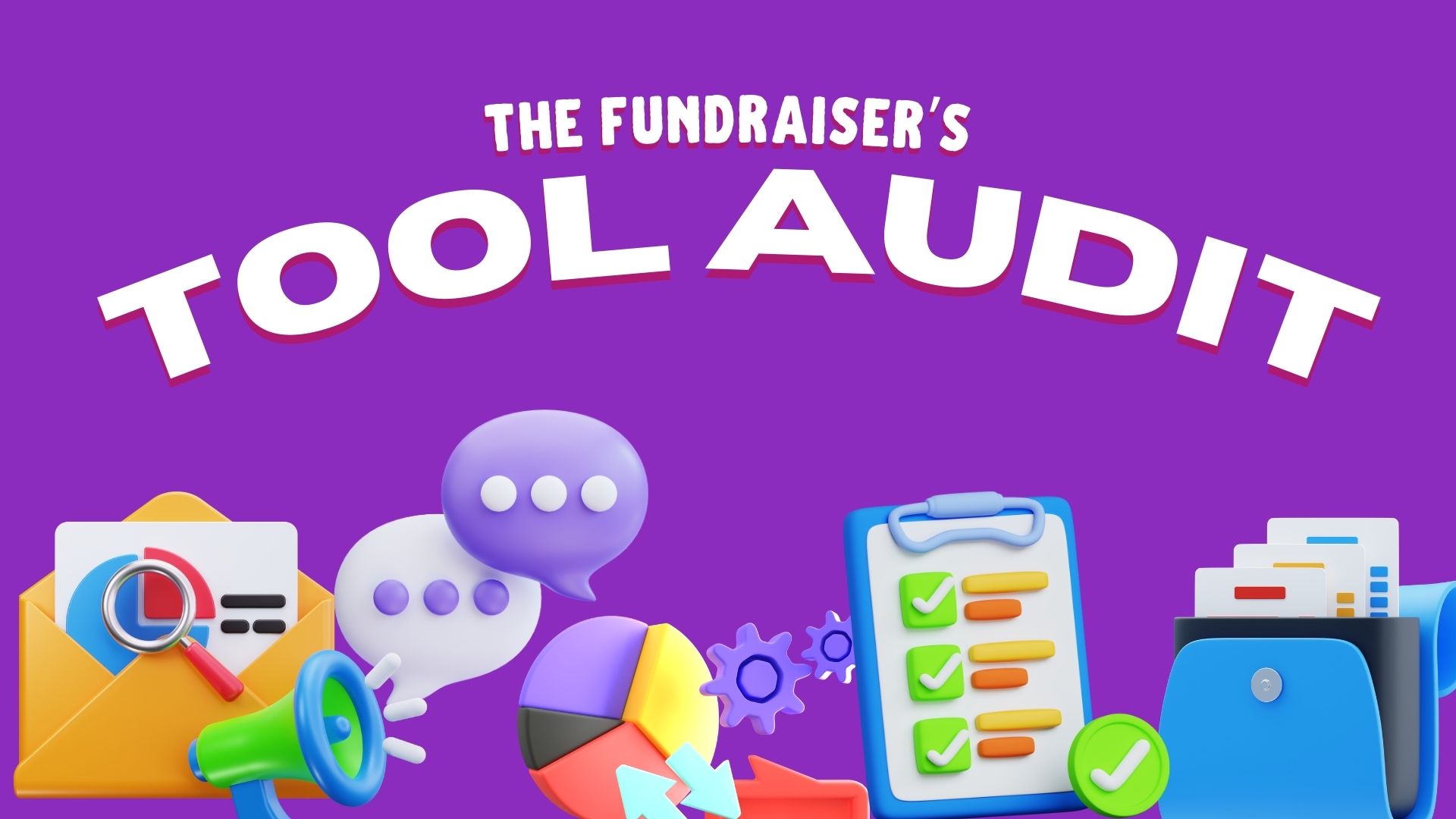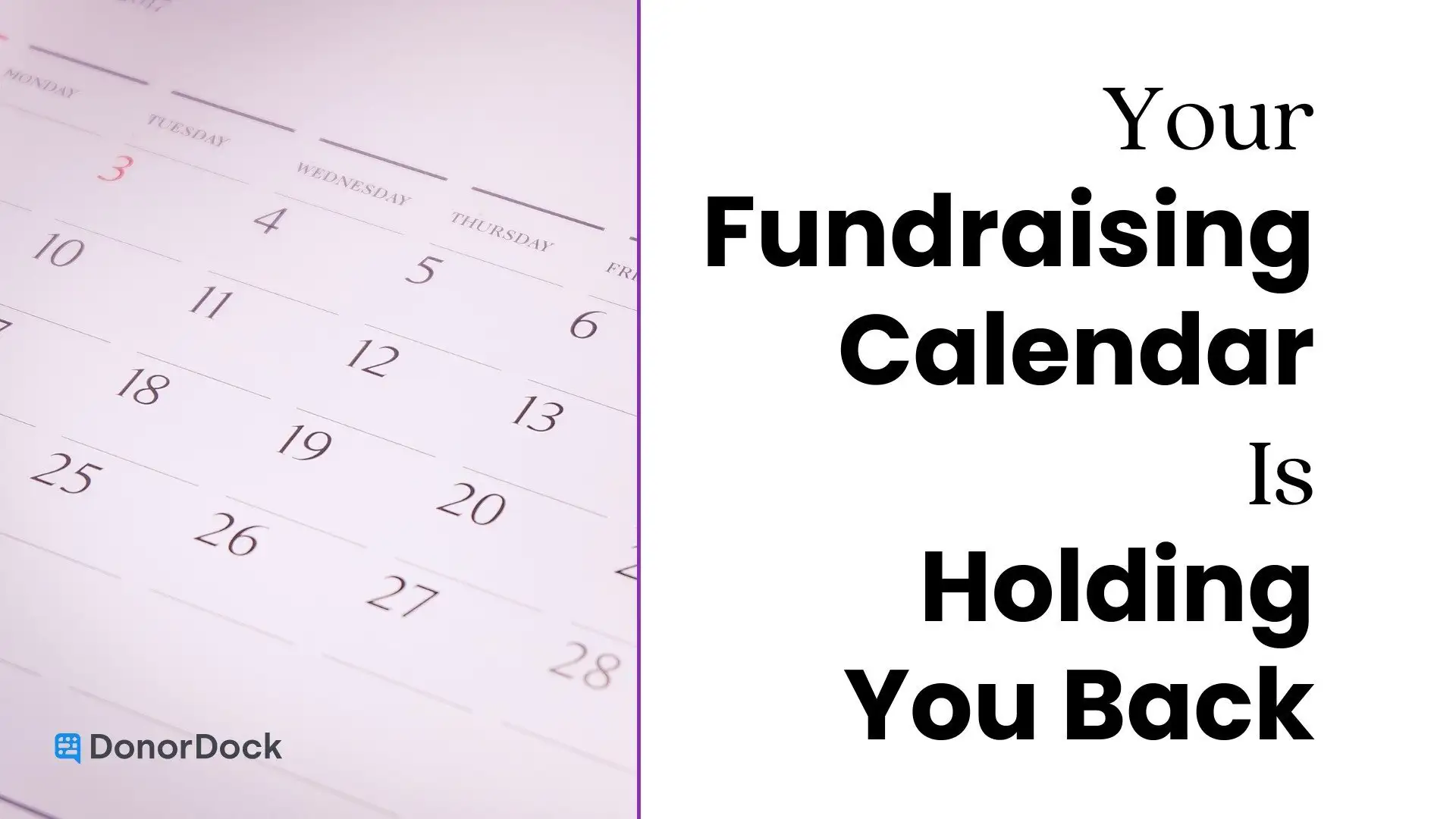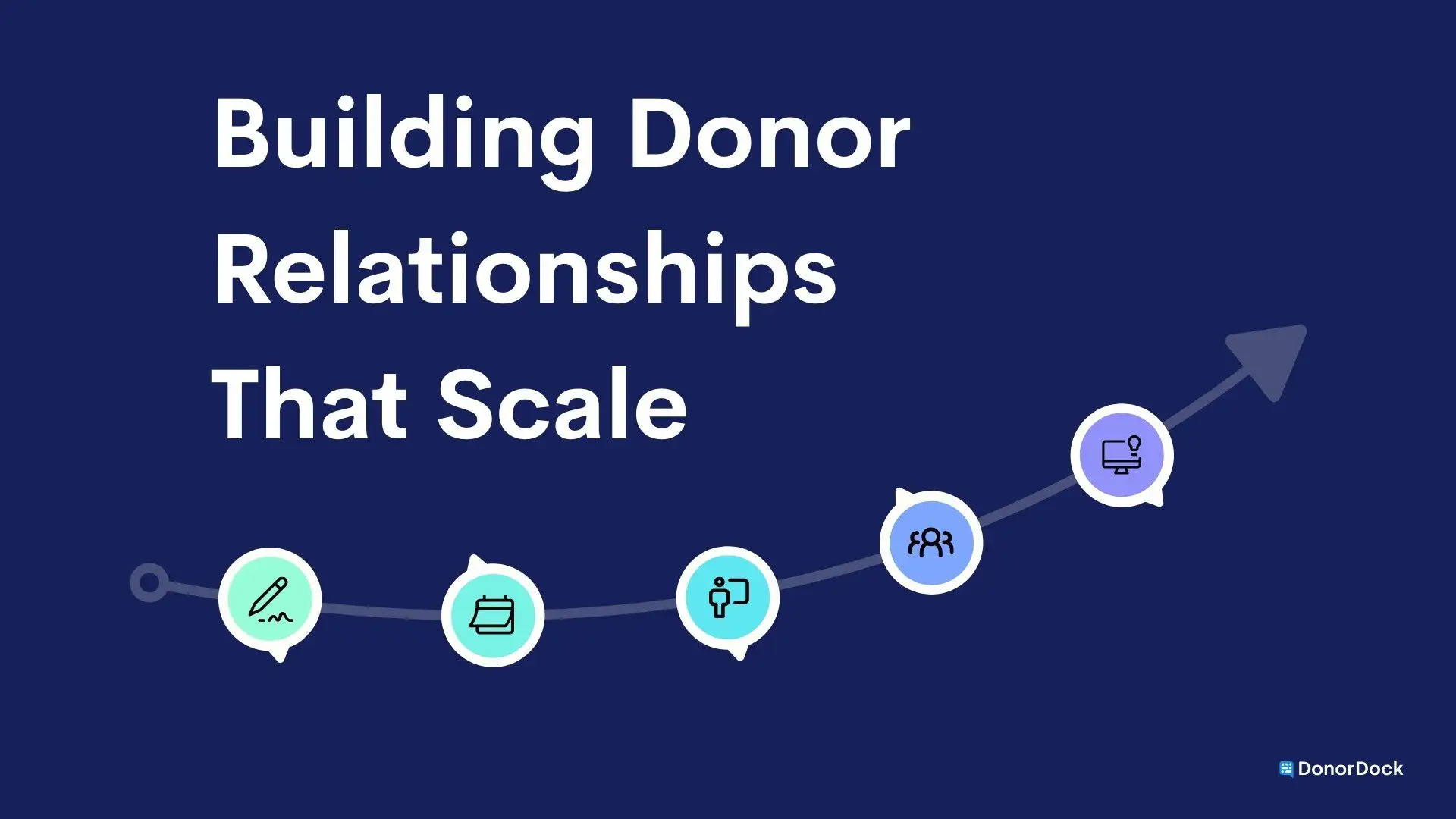What better way to close out the calendar year than with a special, insider-edition episode of our Beyond The Donation podcast? DonorDock co-founders, Matt Bitzegaio and Andrew Lutgen, sat in the hot seat for this episode while Val Kleppen filled in as guest-host. Val tried to get to the nitty-gritty of the history (and future) of DonorDock from the perspective of the very people who got it off the ground. Listen in to this personable, from-the-heart conversation with Matt and Andrew, and comment to share what you learned from this episode that you didn't know before!
Edited transcript of Beyond the Donation episode 22
Introducing Matt and Andrew founders of DonorDock
[00:00:24] Val Kleppen: Welcome everyone to the Beyond the Donation podcast. You are sure to recognize the fact that I am not Matt Bitzegaio. I am Val Kleppen hosting today because Matt Bitzegaio happens to be one of our guests, along with his cofounder and friend in DonorDock, Andrew Lutgen. I just want to start every episode of Beyond the Donation podcast with the guests introducing themselves. I'll start with you, Matt. Tell the audience a little bit about yourself and then you can pass it on to Andrew.
[00:01:20] Matt Bitzegaio: All right. Well, my name is Matt Bitzegaio. I am the normal host of the Beyond the Donation podcast and the cofounder of DonorDock. I live in Fargo, North Dakota, and have been in the CRM and technology space for 20 years now and have been able to work with nonprofits, for about the last six years exclusively. With DonorDock–I love the customers that we get to work with and the missions that we get to support. I’m happy to have Andrew sitting next to me and being a part of this from the beginning as well.
[00:01:54] Andrew Lutgen: Yeah. I'm Andrew Lutgen, cofounder and Chief Technology Officer at DonorDock. I’ve been about 20 years in the software engineering professional field. And I've been with DonorDock, five or six years. I love what we're doing. I'm also in Fargo, North Dakota.
[00:04:26] Matt Bitzegaio: We've been working together now since the early to mid-2000.
[00:04:37] Andrew Lutgen: We initially met when you hired me and that happened through a mutual contact that we had.
[00:05:02] Matt Bitzegaio: And it's been one of those situations where you find people that you enjoy working with and, and trust and have a good synergy with it.
DonorDock: founded with small nonprofits in mind
[00:05:19] Matt Bitzegaio: When I had the idea for DonorDock, Andrew was the first person that I called. And that’s how we kicked this off.
[00:06:41] Val Kleppen: So, what motivated you to create DonorDock? How did that get started?
[00:06:50] Matt Bitzegaio: We had been in the Microsoft channel for a number of years. Through that, we were working with enterprise CRM and some custom software that we'd built. One of those products was targeting the nonprofit sector. I saw how those monolithic enterprise CRMs were challenging to get implemented well within the smaller nonprofit space.
Once we understood those smaller nonprofits were underrepresented, we wanted to take a lot of what we had learned and specifically design something that worked better for those midsize and smaller nonprofits.
That's where DonorDock started. And from the beginning, we've tried to always have in our mind, “How will this work for a smaller nonprofit?”
[00:08:33] Andrew Lutgen: We got to a point with those larger systems, where we recognized they weren't working the best for smaller nonprofits. And then realizing that maybe the best way to help is to build something ourselves. And I think it's grown and it's served a lot of people.
[00:09:05] Matt Bitzegaio: We think about the idea of innovating through simplicity. You can always build more features and add new shiny objects to the product, but at the end of the day, for that market specifically, innovation means it’s simpler to use and yet still provides what people need. That's been something we've tried to hold as a North star as we've built the product and kept it going here.
Build with input from small nonprofits
[00:09:41] Val Kleppen: That's interesting, as a non-technological person, hearing your perspective on what you saw was and wasn't working. I'm interested to know also Bridget, your wife, had launched a nonprofit. Did you see firsthand some of the struggles that she was having in the nonprofit space?
[00:10:00] Matt Bitzegaio: For sure. She's your typical founder of a nonprofit who cares about the mission. She realized to keep it going, you have to raise some money unless you just want to do everything volunteer. But understanding what a one-person shop would need to be able to operate certainly helped guide the product. I think there are other influences we have as well.
There's a wonderful lady here in Fargo named Babs Kohler. Babs used to work for one of the nonprofits that we worked with previously. We would often talk about how we can build something that's going to work well.
We used to use the phrase “Let’s build it for Babs.” She was that persona of a person that's probably got more things on their plate than they know how to get done and you want to try and help them achieve more in less time.
There's such a vibrant nonprofit community here in this area. We had access to a broad range of nonprofits. We had 10 beta customers that we gave the product to, if they would help us figure out what it needed to do.
[00:12:14] Andrew Lutgen: It was great having those first customers local. I remember back in the early days, we’d get the local customers together and go over what was happening with DonorDock and help them prepare for their fundraising efforts. That was a great experience, and it's great that we still have a lot of local resources.
On being a small startup
[00:14:35] Val Kleppen: Did you ever get frustrated to the point where you just wanted to walk away before it ever launched?
[00:14:44] Matt Bitzegaio: Not for me. There were moments where it was frustrating, but never to a point where I would want to have walked away. I was working and doing consulting to try and pay the bills while we were building this.
It was a lot of nights and I used to tell myself, “Every day I need to get a couple of hours into DonorDock.” That's what I used to try and do to move it forward. I think that's a good lesson for our nonprofit customers. Sometimes you just have to start and you have to just try and move things along, even if it's not perfect.
[00:16:13] Andrew Lutgen: I never wanted to walk away from it either. If anything, I was frustrated with what was preventing us from really going headfirst into it. You know, bills and mortgages and everything. We weren't college kids. But, we had the right skill sets and mentality to do this on the nights and weekends. And eventually, we were able to walk away from everything else and, and concentrate all our efforts on DonorDock.
Launching DonorDock
[00:16:59] Val Kleppen: When it came close to officially launching, what was going through your mind?
[00:17:18] Matt Bitzegaio: I have gone through cycles as an entrepreneur of blind optimism. I think what kept me going was the thought, “I don't know how this couldn't work.” And then, as things went along it’s, “Gosh, this is going to work, right?” So, I've gone through a broad range of different emotional states. And I think it was a relief to actually get it out.
[00:18:38] Andrew Lutgen: There are still ups and downs. But I'd say it was a relief to get it out. It was exciting. I probably had some expectations that turned out a little different, which was fine, but you just have to get it out there and then start learning from what's happening.
[00:19:04] Matt Bitzegaio: Speaking of expectations – we had one paying customer that signed up in that first month that we had launched it. You have this idea that you're going to turn it on, and people are going to sign up magically. But at the end of the day, it was a reality check that we had spent a lot of time on the product and maybe not as much time on our go-to-market strategy.
Encouragement to new small nonprofits
[00:21:28] Val Kleppen: From the time that it launched to today, if you could take that 30,000 foot view over the last five years, what have you learned that's different from the day that it launched?
[00:21:46] Matt Bitzegaio: The biggest thing that I've learned is that you can build the best product, but if you don't have a good go-to-market strategy, then you may end up with just a product that doesn't have any users.
[00:23:01] Andrew Lutgen: I would say that how you think somebody is going to use something is probably not reality. You can't do something like this in a silo and just think that you're making all the right decisions. You have to listen to customer feedback and understand their processes, and what they need to get out of it. So, that continues to be a good way to learn for me.
[00:23:45] Val Kleppen: That's such a perfect answer when you relate it to the customers that DonorDock serves. What both of you answered is so translatable to the nonprofit world. Instead of “go-to-market” like you mentioned, Matt, it's a mission communication strategy. How can we market our mission and get our message out there to others?
And then Andrew, just as you said, that continual loop of feedback and making adaptations and tweaks and changes along the way. I think any nonprofit can do a plug-and-play essentially of that mindset or strategy and have it work for them. So that was really more of a beautiful answer than you may have anticipated.
Future of technology in the nonprofit space
[00:24:37] Val Kleppen: But what are your hopes for the nonprofit world for the future in terms of what DonorDock will become?
[00:25:05] Matt Bitzegaio: What we try and do with DonorDock is build these tools that can level that playing field a bit and have something that is really meant for those small nonprofits and that they can afford.
[00:25:40] Andrew Lutgen: Being accessible, transparent, and affordable, while still growing with all the new technology and ways to communicate and fundraise.
[00:25:56] Matt Bitzegaio: There's so much technology, technology is changing so quickly now. How do we take the brunt of the complexity of it and obfuscate that away from our customers so that it's usable for them?
A core value of ours is simplification. I think that comes through and not only how we try and run the business, but also in how we try and build the product. We don't always hit the mark, but we're always striving to improve.
Wrapping up
[00:32:07] Val Kleppen: As we wrap up here, is there any word of encouragement you would like to pass on to nonprofits?
[00:32:16] Matt Bitzegaio: Don't let the perfect be the enemy of the good. We have a tendency a lot of times to not want to do something until we can do the perfect thing. And sometimes the good thing is, is good enough.
[00:32:49] Andrew Lutgen: Just be confident in yourself and like Matt said, just get it out there. Try and you can only learn from your mistakes.
To Connect with Beyond the Donation Podcast:
BTD Podcast DonorDock LinkedIn Matt LinkedIn












